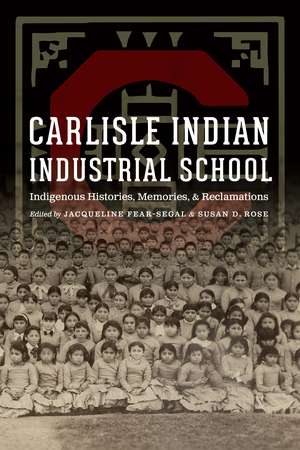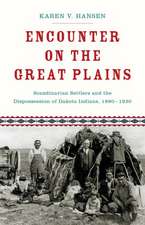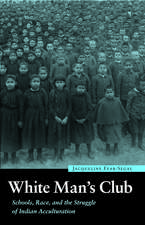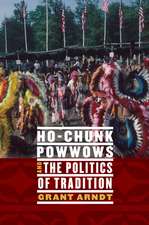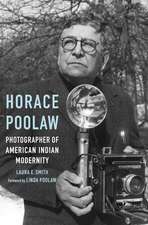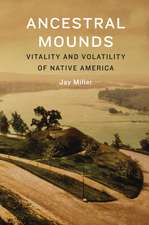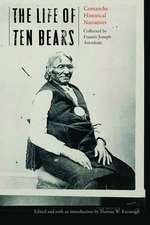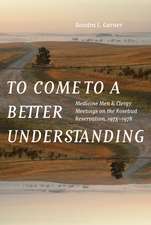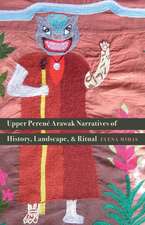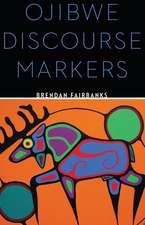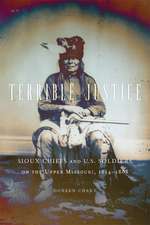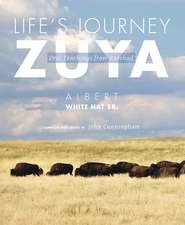Carlisle Indian Industrial School: Indigenous Histories, Memories, and Reclamations: Indigenous Education
Editat de Jacqueline Fear-Segal, Susan D. Roseen Limba Engleză Hardback – 30 sep 2016
The Carlisle Indian School (1879–1918) was an audacious educational experiment. Lieutenant Richard Henry Pratt, the school’s founder and first superintendent, persuaded the federal government that training Native children to accept the white man’s ways and values would be more efficient than fighting deadly battles. The result was that the last Indian war would be waged against Native children in the classroom.
More than 8,500 children from virtually every Native nation in the United States were taken from their homes and transported to Pennsylvania. Carlisle provided a blueprint for the federal Indian school system that was established across the United States and also served as a model for many residential schools in Canada. The Carlisle experiment initiated patterns of dislocation and rupture far deeper and more profound and enduring than its founder and supporters ever grasped.
Carlisle Indian Industrial School offers varied perspectives on the school by interweaving the voices of students’ descendants, poets, and activists with cutting-edge research by Native and non-Native scholars. These contributions reveal the continuing impact and vitality of historical and collective memory, as well as the complex and enduring legacies of a school that still affects the lives of many Native Americans.
More than 8,500 children from virtually every Native nation in the United States were taken from their homes and transported to Pennsylvania. Carlisle provided a blueprint for the federal Indian school system that was established across the United States and also served as a model for many residential schools in Canada. The Carlisle experiment initiated patterns of dislocation and rupture far deeper and more profound and enduring than its founder and supporters ever grasped.
Carlisle Indian Industrial School offers varied perspectives on the school by interweaving the voices of students’ descendants, poets, and activists with cutting-edge research by Native and non-Native scholars. These contributions reveal the continuing impact and vitality of historical and collective memory, as well as the complex and enduring legacies of a school that still affects the lives of many Native Americans.
| Toate formatele și edițiile | Preț | Express |
|---|---|---|
| Paperback (1) | 296.46 lei 6-8 săpt. | |
| Nebraska – noi 2018 | 296.46 lei 6-8 săpt. | |
| Hardback (1) | 502.24 lei 6-8 săpt. | |
| Nebraska – 30 sep 2016 | 502.24 lei 6-8 săpt. |
Preț: 502.24 lei
Nou
Puncte Express: 753
Preț estimativ în valută:
96.13€ • 99.98$ • 80.56£
96.13€ • 99.98$ • 80.56£
Carte tipărită la comandă
Livrare economică 13-27 martie
Preluare comenzi: 021 569.72.76
Specificații
ISBN-13: 9780803278912
ISBN-10: 0803278918
Pagini: 414
Ilustrații: 29 photographs, 2 maps, 1 chronology, index
Dimensiuni: 152 x 229 x 38 mm
Greutate: 0.76 kg
Editura: Nebraska
Colecția University of Nebraska Press
Seria Indigenous Education
Locul publicării:United States
ISBN-10: 0803278918
Pagini: 414
Ilustrații: 29 photographs, 2 maps, 1 chronology, index
Dimensiuni: 152 x 229 x 38 mm
Greutate: 0.76 kg
Editura: Nebraska
Colecția University of Nebraska Press
Seria Indigenous Education
Locul publicării:United States
Notă biografică
Jacqueline Fear-Segal is a professor of American and Indigenous histories at the University of East Anglia, UK. She is the author of White Man’s Club: Schools, Race, and the Struggle of Indian Acculturation (Nebraska, 2007) and coeditor of Indigenous Bodies: Reviewing, Relocating, Reclaiming. Susan D. Rose is the Charles A. Dana Professor of Sociology at Dickinson College. She is the author of Keeping Them Out of the Hands of Satan: Evangelical Schooling in America and Challenging Global Gender Violence and coauthor of Exporting the American Gospel: Global Christian Fundamentalism.
Cuprins
List of Illustrations
Acknowledgments
Introduction
Jacqueline Fear-Segal and Susan D. Rose
Welcome, with Seneca Thanksgiving Prayer “We Are One” by Peter Jemison (Seneca)
Part 1. A Sacred and Storied Place
1. The Stones at Carlisle
N. Scott Momaday (Kiowa)
2. Before Carlisle: The Lower Susquehanna Valley as Contested Native Space
Christopher J. Bilodeau
Part 2. Student Lives and Losses
3. Photograph: Carlisle Poem—Who Is This Boy?
Maurice Kenny (Mohawk)
4. The Names
Barbara Landis
5. White Power and the Performance of Assimilation: Lincoln Institute and Carlisle Indian School
Louellyn White (Mohawk)
6. The Imperial Gridiron: Dealing with the Legacy of Carlisle Indian School Sports
John Bloom
7. Waste
Maurice Kenny (Mohawk)
Part 3. Carlisle Indian School Cemetery
8. Cementerio indio
Eduardo Jordá
Translation by Mark C. Aldrich
9. The History and Reclamation of a Sacred Space: The Indian School Cemetery
Jacqueline Fear-Segal
10. Death at Carlisle: Naming the Unknowns in the Cemetery
Barbara Landis
Part 4. Reclamations
11. The Lost Ones: Piecing Together the Story
Jacqueline Fear-Segal
12. Necropolitics, Carlisle Indian School, and Ndé Memory
Margo Tamez (Ndé/Lipan Apache)
13. Sacred Journey: Restoring My Plains Indian Tipi
Carolyn Rittenhouse (Lakota)
14. Carlisle Farmhouse: A Major Site of Memory
Carolyn Tolman
Part 5. Revisioning the Past
15. Research Note on the Carlisle Indian Industrial School Digital Humanities Project
Malinda Triller Doran
16. Carlisle Indian Industrial School: Projects for Teaching
Paul Brawdy and Anne-Claire Fisher
Part 6. Reflections and Responses
17. The Spirit Survives
Dovie Thomason (Lakota and Kiowa Apache)
18. Response to Visiting Carlisle: Experiencing Intergenerational Trauma
Warren Petoskey (Odawa and Lakota)
19. The Presence of Ghosts
Maurice Kenny (Mohawk)
20. A Sacred Space
Sharon O’Brien
21. Carlisle: My Hometown
Charles Fox
22. The Ndé and Carlisle: Reflections on the Symposium
Daniel Castro Romero Jr. (Ndé/Lipan Apache)
Epilogue
N. Scott Momaday (Kiowa)
Chronology
Selected Bibliography
Published Resources for Researching the Carlisle Indian Industrial School
Contributors
Index
Acknowledgments
Introduction
Jacqueline Fear-Segal and Susan D. Rose
Welcome, with Seneca Thanksgiving Prayer “We Are One” by Peter Jemison (Seneca)
Part 1. A Sacred and Storied Place
1. The Stones at Carlisle
N. Scott Momaday (Kiowa)
2. Before Carlisle: The Lower Susquehanna Valley as Contested Native Space
Christopher J. Bilodeau
Part 2. Student Lives and Losses
3. Photograph: Carlisle Poem—Who Is This Boy?
Maurice Kenny (Mohawk)
4. The Names
Barbara Landis
5. White Power and the Performance of Assimilation: Lincoln Institute and Carlisle Indian School
Louellyn White (Mohawk)
6. The Imperial Gridiron: Dealing with the Legacy of Carlisle Indian School Sports
John Bloom
7. Waste
Maurice Kenny (Mohawk)
Part 3. Carlisle Indian School Cemetery
8. Cementerio indio
Eduardo Jordá
Translation by Mark C. Aldrich
9. The History and Reclamation of a Sacred Space: The Indian School Cemetery
Jacqueline Fear-Segal
10. Death at Carlisle: Naming the Unknowns in the Cemetery
Barbara Landis
Part 4. Reclamations
11. The Lost Ones: Piecing Together the Story
Jacqueline Fear-Segal
12. Necropolitics, Carlisle Indian School, and Ndé Memory
Margo Tamez (Ndé/Lipan Apache)
13. Sacred Journey: Restoring My Plains Indian Tipi
Carolyn Rittenhouse (Lakota)
14. Carlisle Farmhouse: A Major Site of Memory
Carolyn Tolman
Part 5. Revisioning the Past
15. Research Note on the Carlisle Indian Industrial School Digital Humanities Project
Malinda Triller Doran
16. Carlisle Indian Industrial School: Projects for Teaching
Paul Brawdy and Anne-Claire Fisher
Part 6. Reflections and Responses
17. The Spirit Survives
Dovie Thomason (Lakota and Kiowa Apache)
18. Response to Visiting Carlisle: Experiencing Intergenerational Trauma
Warren Petoskey (Odawa and Lakota)
19. The Presence of Ghosts
Maurice Kenny (Mohawk)
20. A Sacred Space
Sharon O’Brien
21. Carlisle: My Hometown
Charles Fox
22. The Ndé and Carlisle: Reflections on the Symposium
Daniel Castro Romero Jr. (Ndé/Lipan Apache)
Epilogue
N. Scott Momaday (Kiowa)
Chronology
Selected Bibliography
Published Resources for Researching the Carlisle Indian Industrial School
Contributors
Index
Recenzii
"Indigenous voices are at the center of the work. . . . These indigenous voices connecting past and present reinforce the editors' larger effort to historicize, reclaim, and commemorate the Carlisle Indian School."—Hilary N. Green, Journal of the Gilded Age and Progressive Era
"An important contribution to the study of boarding schools. . . . The collective effort of this book restores, reflects, and remembers these children and their stories."—Jacob C. Jurss, South Dakota History
"Carlisle Indian Industrial School is an important starting point for examining Carlisle's place in the history of Native North American and US colonialism."—Frank Kelderman, American Indian Quarterly
"A must-read not only for scholars of Native American history, but also for anyone engaging with a "studies" field. Carlisle Indian Industrial School presents a successful model of truly interdisciplinary and multi-genre work, integrating collaborative engagement beyond academia."—Reetta Humalajoki, Journal of American Studies
"Carlisle Indian Industrial School: Indigenous Histories, Memories, and Reclamations is a book that I would recommend to those wanting to read stories from individuals who have ties to Carlisle Indian Industrial School. These stories detail the challenges that occurred during the time Carlisle was in operation as well as the challenges the Native families experienced by sending, or being forced to send, their children to Carlisle. It is important to remember that the information that is provided needs to be examined to further digest and learn so that the same actions and mistakes are not taken into the future."—Samantha Crofford, Chronicles of Oklahoma
“By bringing together such a diverse range of voices—academics and non-academics, Native and non-Natives—to speak about the history and legacy of what remains the most well-known Indian boarding school, this book does us all a great service. The contributors share their important stories with exceptional grace, insight, and power.”—Stephen Amerman, professor of history at Southern Connecticut State University and author of Urban Indians in Phoenix Schools, 1940–2000
